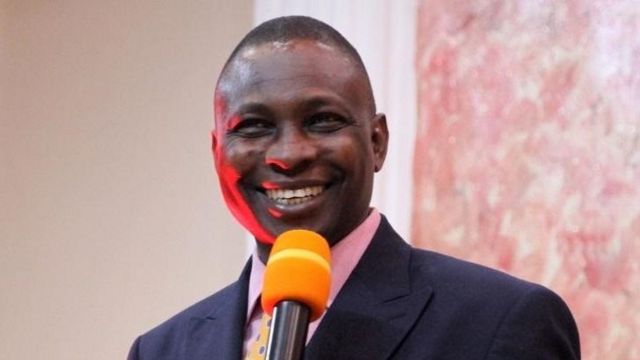The Executive Chairman of the Economic and Financial Crimes Commission (EFCC), Ola Olukoyede, has reaffirmed the Commission’s commitment to enforcing financial laws and cleansing the banking sector of rogue activities.
Speaking at the 17th Annual Banking and Finance Conference organised by the Chartered Institute of Bankers of Nigeria (CIBN) on Tuesday, Olukoyede emphasised that the EFCC will no longer tolerate financial sector malpractices.
“We are no longer folding our arms,” Olukoyede declared during the event held at the Congress Hall of the Transcorp Hilton Hotel, Abuja. He stressed the central role that the banking industry plays in some of the country’s largest financial fraud cases, stating, “Major financial frauds and onslaughts against the economy have run through the banking industry.”
Olukoyede outlined the EFCC’s approach, which includes penal sanctions for criminal infractions, promising that banks and top officials found guilty of wrongdoing will soon face prosecution. “We have compiled our documents, conducted necessary investigations, and very soon, you will see some banks and top officials prosecuted,” he added.
The EFCC chairman specifically highlighted forex round-tripping, phantom charges, and money laundering as key malpractices eroding trust in Nigeria’s financial system. He called on banking executives to recommit to professionalism, urging them to stop circumventing regulations for higher yields. “Look at yourselves in the mirror and leave this place with a renewed commitment to professionalism,” Olukoyede said.
Vice President Kashim Shettima, speaking on behalf of President Bola Tinubu, addressed the broader economic challenges facing Nigeria, including inflation, rising living costs, and infrastructure deficits. Despite these challenges, Shettima expressed optimism about future growth opportunities, stating, “The challenges also present opportunities for growth and development.”
He emphasised the importance of collaboration between the government, private sector, and civil society in driving sustainable economic growth. “We must intentionally align our policies and actions with the changing global landscape,” Shettima remarked, underscoring the government’s commitment to macroeconomic reforms and infrastructure development.
In his remarks, CIBN President Pius Olanrewaju highlighted the need for actionable outcomes that will drive the evolution of Nigeria’s banking sector and broader economy. Tony Elumelu, Chairman of Heirs Holdings and keynote speaker at the event, reflected on Nigeria’s economic struggles in 2024, noting the challenges of inflation and trade imbalances. Elumelu called for long-term, sustainable policies to address the country’s economic difficulties, stating, “2024 has been a tough year for the country.” He urged stakeholders to focus on creating a solid foundation for future growth rather than relying on quick fixes.



